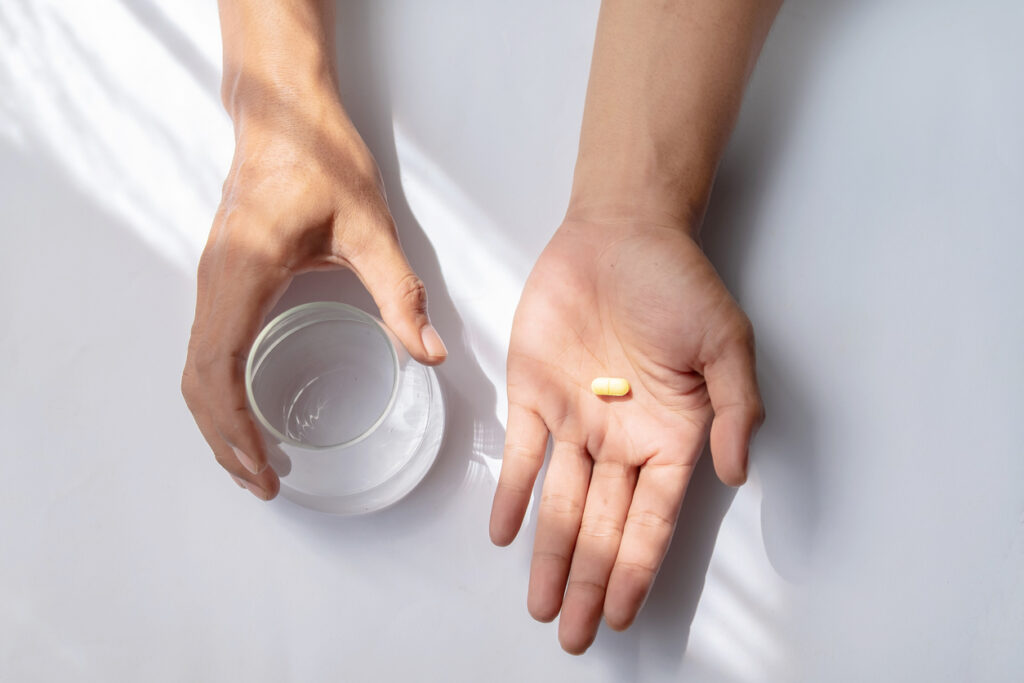
As children, we knew a song about an old woman who swallowed a fly. She then swallowed a spider to catch the fly, a bird to catch the spider, and so on until she swallowed a horse and died – of course. This nonsensical song is a reminder that sometimes we mistakenly get caught in a spiral of making wrong decisions to correct for previous errors. In recent years, medications have been developed to treat chemical dependencies. Often, the medications are similar to the drug being abused, raising the question, “Are they really sober or just substituting a different addiction?”
This is a common tactic for individuals trying to decrease their own use — to substitute one thing for another. A frequent example is switching from hard liquor to beer or changing to lighter nicotine cigarettes. The logic is there, but the disease of addiction will demand stronger and more of whatever the drug of choice is. The drugs get stronger, the alcohol proof gets higher, and the pornography gets more explicit. When supervised use of medications is substituted to help weak sobriety, it is called “Harm Reduction” in the medical community. In the rooms of AA, some old-timers will shame a person revealing their mental health drugs as being the owners of “a dirty chip.” This must stop.
In 1939, German scientists invented Methadone for pain treatment when the Allies denied them access to poppies to make opioids but continued to shoot their soldiers. Physicians started using it for heroin withdrawal so the dose could be controlled and eventually weaned, and the person wouldn’t need to break the law to avoid withdrawal symptoms. This had some success and was one of the early attempts at “harm control.” There were also serious problems with this drug, but for a long time, it was the only game in town.
More recently, a drug named Suboxone was approved and can provide the same withdrawal assistance without the severe risks of overdose and other issues common with methadone. It’s wrong to say it has no street value, but low value since most people buying it are usually doing so to try to wean themselves from stronger street opioids. Well-respected studies show that the use of Sub (as it is called) leads to many fewer deaths than placebo, especially in 18-30 year old patients. It is used in some cases for detox from opioids and in other patients for overcoming cravings that far too often lead to deadly overdose in relapse.
Some reasonable people may have issues with harm reduction, but please know that many studies show decreases in death from relapse and crime reduction. It is impossible to bring people back to Christ if they die of their disease, and far too many of our young people are doing just that. It should be done only as part of a vigorous, well-supervised, integrated treatment program with much attention to counseling, education, group support, and realigning the newly sober person with a Christian life within a Christ-centered church.
So, the question of this blog is “Are they really sober?” The answer, like many things, is complicated. If I have diabetes, I want insulin, and if I break a leg, I want a crutch for a while. Those who got sober without these medications say they aren’t needed — that somehow, it’s cheating. Those who used Suboxone often credit it with saving their lives and allowing them to live long enough to know a loving God. As usual, our Lord Jesus has the final word, “Let he who is without sin cast the first stone.”
Mic drop.
Featured Resource

The statistics on drug and substance disorder are staggering. We've put together this FREE downloadable resource for your church to use to better understand what is happening in today's world.
Use this form to access the whitepaper.
By submitting this form you agree to receive updates and information from The Dunamis Initiative via email. We are careful with your information and do not redistribute it in any way.
